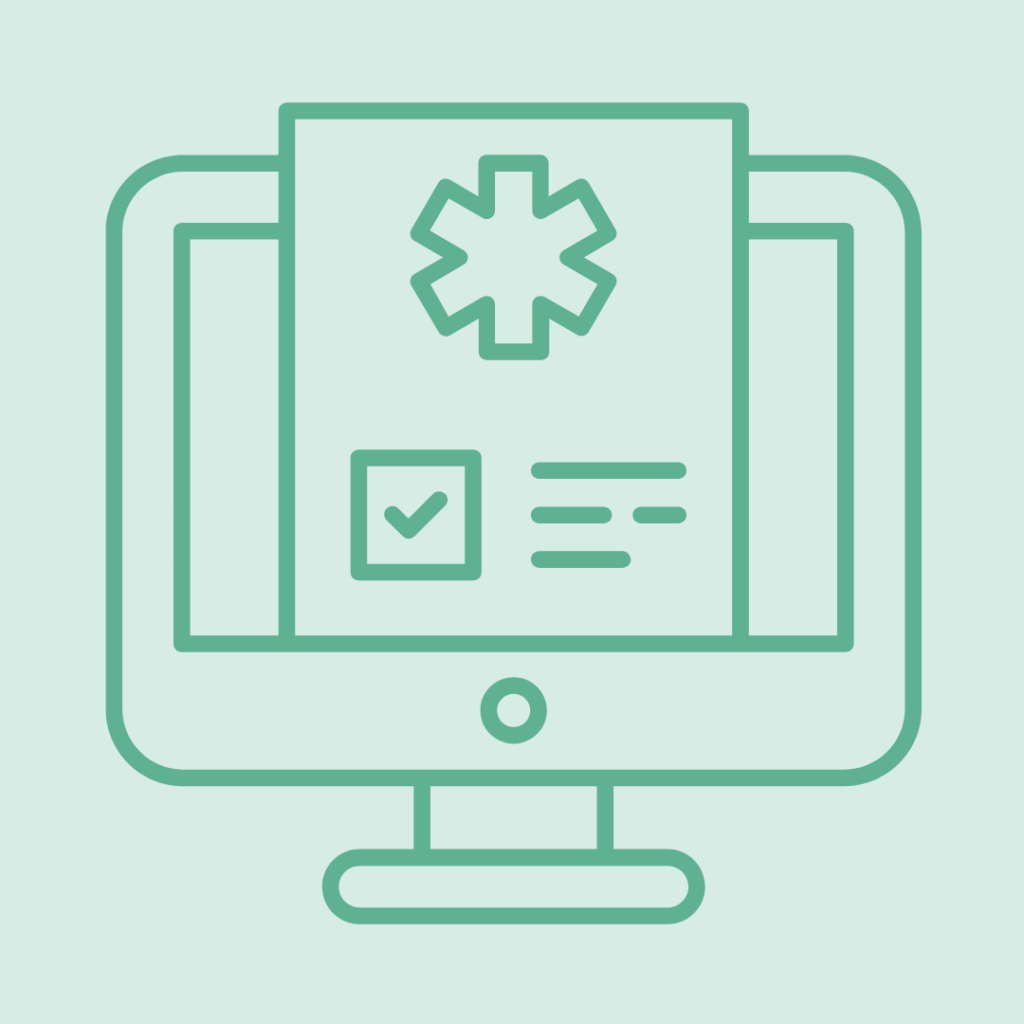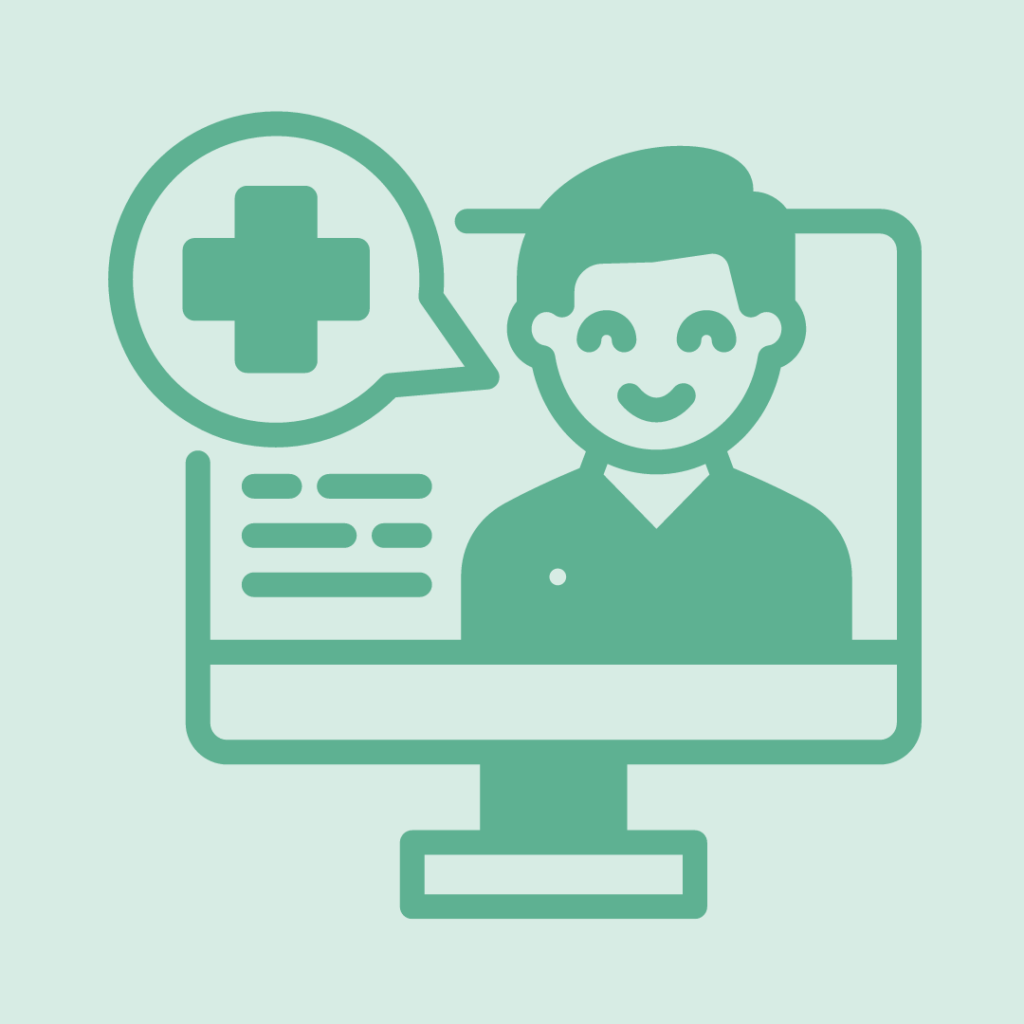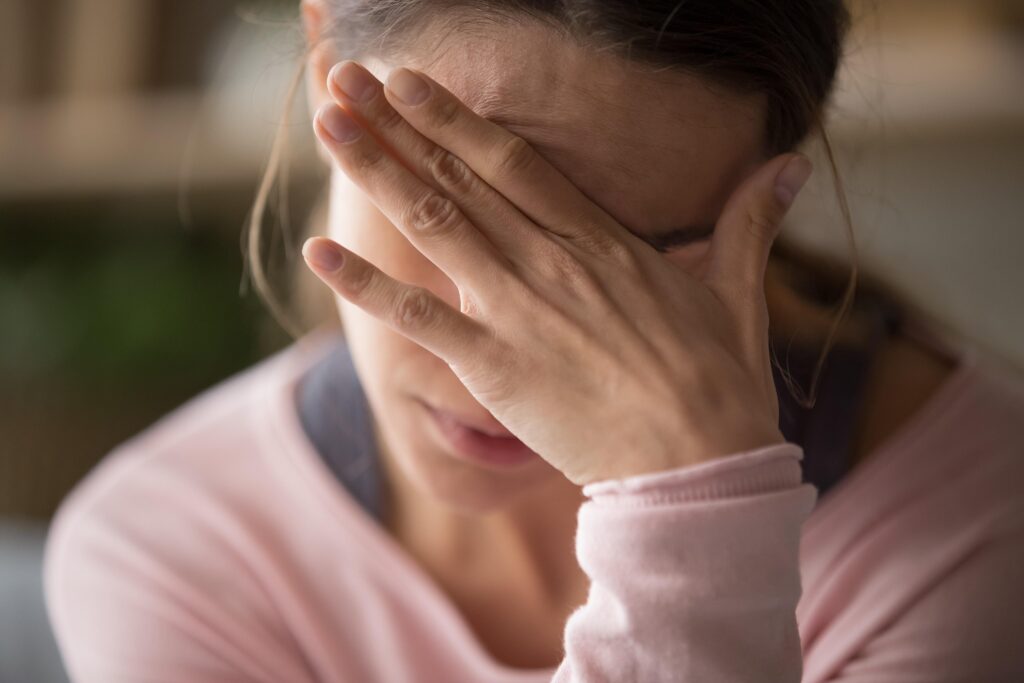Anxiety treatment
6am - midnight, 7 days a week
Accessible from anywhere in Australia.
eScript in minutes
Medication delivery

What is anxiety?
Anxiety is a natural response to stress, but when it becomes excessive or persistent, it can interfere with daily life. It is characterised by feelings of fear, worry, and unease. Anxiety disorders are among the most common mental health conditions, affecting millions worldwide. They can range from generalised anxiety disorder (GAD) to panic disorder, social anxiety disorder, and phobias.
Anxiety Treatment Options

Online Prescriptions
- For when your script has run out
- Script sent to your phone
- Doctor approved

Telehealth Consultations
- When you need to speak to a doctor
- Online, Video & Phone Call or Message
- Fast access to medical advice
Medical Certificates
- For when your script has run out
- Script sent to your phone
- Doctor approved
Anxiety and Depression
Anxiety and depression often occur together, with overlapping symptoms such as persistent worry, sleep disturbances, and difficulty concentrating. People with anxiety may develop depression due to prolonged stress and emotional distress. Likewise, those with depression may experience heightened anxiety. Treating both conditions typically involves a combination of therapy, medication, and lifestyle changes to manage symptoms effectively.

Anxiety Symptoms
Symptoms of anxiety can vary but commonly include:
- Excessive worrying or nervousness
- Restlessness or feeling on edge
- Increased heart rate or palpitations
- Difficulty concentrating
- Irritability
- Sleep disturbances, such as insomnia
- Physical symptoms like dizziness, nausea, or muscle tension
Causes, dangers and Complications of Anxiety
- Causes: Anxiety can be triggered by a combination of genetic, environmental, and psychological factors. Stressful life events, trauma, substance use, and underlying medical conditions may also contribute.
- Dangers: If left untreated, anxiety can significantly impact daily life, relationships, and work performance. It can also lead to physical health issues, such as high blood pressure and digestive problems.
- Complications: Chronic anxiety increases the risk of depression, substance abuse, and other mental health disorders. It can also contribute to heart disease, weakened immune function, and an overall reduced quality of life.
If you or someone you know is struggling with anxiety, seeking professional help is essential. Treatment and support can make a significant difference in managing symptoms and improving wellbeing.

Need a Specialist Referral?Get Yours in a Few Simple Steps!
Skip the long clinic waits and get referred to a specialist in minutes. The process is fast, secure, and simple.
- Quick access to specialist referrals – no in-person appointments needed
- Telehealth consultations with trusted, licensed doctors
- Fast, reliable service – referrals sent directly to your chosen specialist
- Convenient and affordable healthcare from your home
- No hidden costs – just simple, upfront pricing
Frequently
Asked Questions
Anxiety disorders are a common group of mental health conditions in Australia, affecting approximately 1 in 4 people at some point in their lives. An anxiety disorder involves persistent fears that cause significant distress and interfere with your ability to participate in activities you want or need to do. Different types of anxiety disorders include generalized anxiety disorder, social phobia (or social anxiety disorder), panic disorder, agoraphobia, specific phobias, obsessive-compulsive disorder (OCD), and post-traumatic stress disorder (PTSD).
Symptoms of anxiety disorders can vary from person to person, but common signs include struggling to manage fears and worries, feeling anxious or helpless, sensing a looming threat, experiencing racing thoughts, difficulty concentrating, and memory issues. Individuals with anxiety disorders might also avoid situations that trigger their anxiety and have ongoing concerns about the past, present, or future.
Physical symptoms associated with anxiety disorders can include:
•Rapid heartbeat or palpitations
•Shortness of breath or hyperventilation
•Sweating, often excessively
•Trembling or shaking
•Muscle tension or stiffness
•Headaches or migraines
•Dizziness or lightheadedness
•Nausea or stomach discomfort
•Fatigue or feeling weak
•Difficulty sleeping or insomnia
These physical symptoms often accompany the emotional and mental symptoms of anxiety, adding to the overall distress and discomfort.
The exact causes of anxiety are not entirely known and can differ from one person to another. However, anxiety disorders are thought to develop due to a combination of genetic, environmental, and personal factors. These may include a family history of mental health conditions, ongoing stress, trauma or abuse, certain personality traits, physical health problems, substance use, and hormonal changes. It’s important to recognize that each individual’s experience with anxiety is unique.
Depression is a prevalent condition, with about one million people in Australia experiencing it each year. Statistics indicate that one in six women and one in eight men will face depression at some point in their lives. The good news is that depression is treatable, and effective treatments are available. Seeking support early can lead to a quicker recovery.
Depression can manifest in various ways, affecting how individuals think, feel, and behave. A person may be experiencing depression if, for more than two weeks, they consistently feel deeply sad, lose interest or pleasure in their usual activities, and show multiple signs across at least three of the following categories:
•Feelings: Persistent sadness, misery, irritability, feeling overwhelmed, guilt, frustration, lack of confidence, indecisiveness, difficulty concentrating, and disappointment.
•Thoughts: Self-critical thoughts such as feelings of failure, self-blame, a pessimistic outlook, worthlessness, seeing no good in life, hopelessness, and thoughts that life isn’t worth living or that others would be better off without them.
•Behavioral Symptoms: Withdrawing from close relationships, avoiding social activities, abandoning previously enjoyable activities, reduced productivity at work or school, and reliance on alcohol or sedatives.
•Physical Symptoms: Constant fatigue, feeling physically unwell or drained, frequent headaches, stomach or muscle pain, a persistent sense of unease, sleep disturbances, and significant changes in appetite leading to weight loss or gain.

